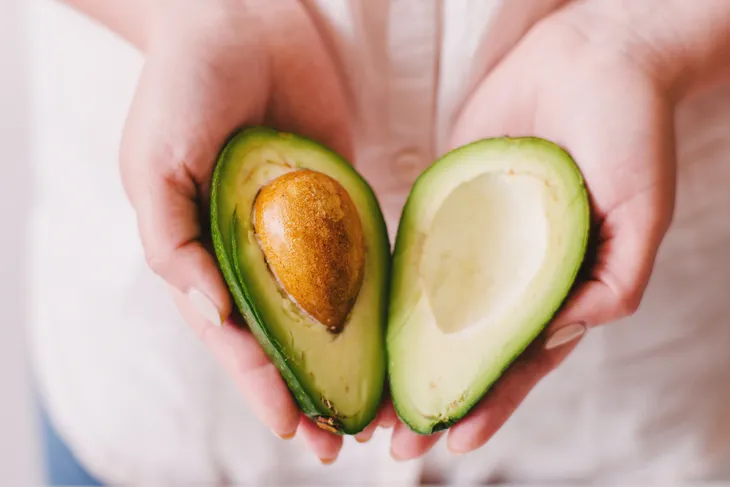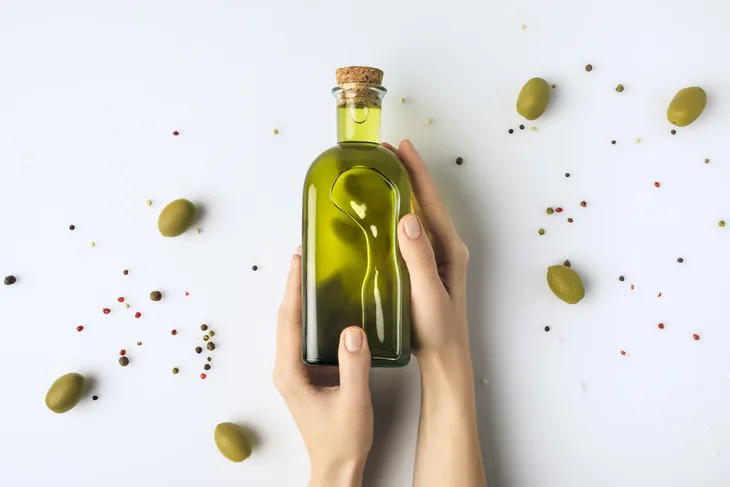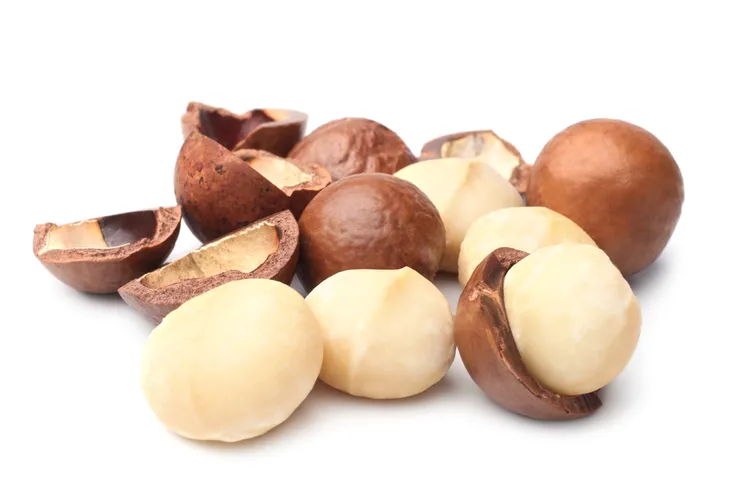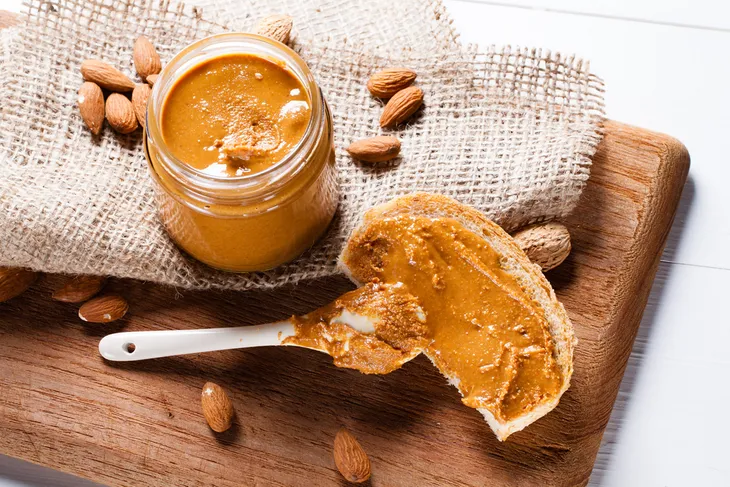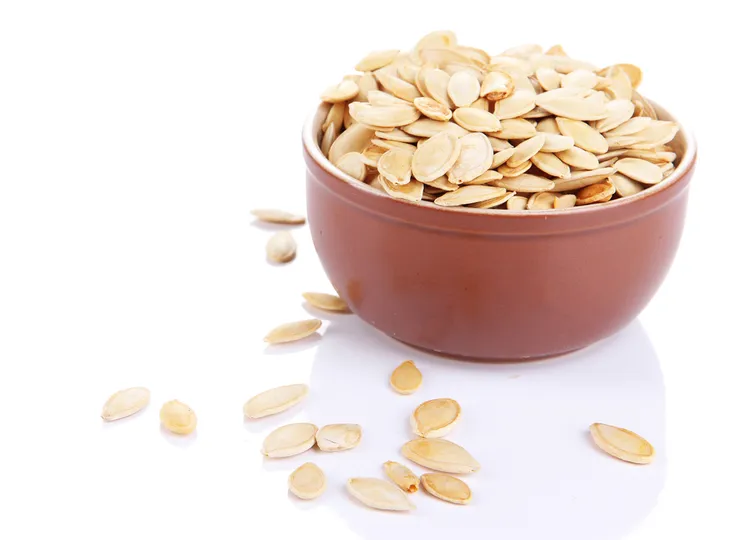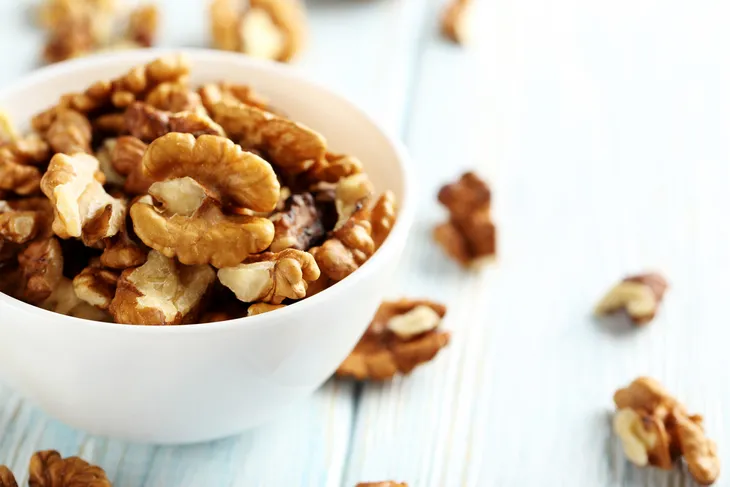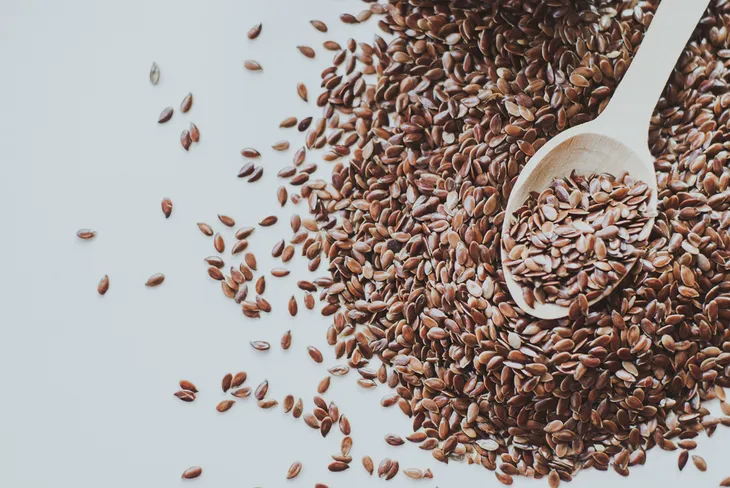It wasn’t long ago that the health world waged a war on fat, and low-calorie diets seemed like the smart way to eat healthy. Thankfully, we’ve since learned that there are good fats and bad fats, and there’s a big difference between the two.
The so-called bad fats are also known as saturated and trans fats and are found in a large majority of processed foods. These cause our bodies to produce more bad cholesterol, which increases the risk of heart disease later in life. The good fats (also known as unsaturated fats) however, come in two forms: polyunsaturated and monounsaturated and there are plenty of great places to find these healthy fats. Let’s take a look at these 9 awesome food sources of healthy fats…
Avocados
There aren’t many people who don’t enjoy the rich creamy texture and mild flavor of avocados, and now you can feel pretty good about eating them on a regular basis. Unlike most fruits that are high in sugars and carbs, the avocado is actually extremely high in healthy fats, about 77-percent, making their fat content even higher than most animal foods.
The predominant fatty acid present in these green pear shaped fruits is oleic acid, a type of monounsaturated fat that’s also found in olive oil and has been linked to several health benefits including reduced risk of breast cancer and inflammation. Because avocados have such a mild, creamy flavor, they work well in all sorts of foods including sandwiches, spreads, with eggs for breakfast, and smashed up into a quick guacamole for dinner.
Whole Eggs
While whole eggs were once considered to be bad for your health because the yolks are high in cholesterol and fat. We’ve since gained a better understanding of how the body actually reacts to and uses these fats. Now whole eggs are considered a very healthy food source. A single egg contains about 212 milligrams of cholesterol which is 71-percent of the recommended daily intake, however, studies have now shown that the type of cholesterol in eggs (for the most part) does not affect the cholesterol in our blood.
This is great news as eggs contain essentially a little bit of every nutrient we need for a healthy diet. Not only are eggs loaded with healthy fats, but are also high in protein making them a perfect food to fill you up and keep you satisfied for longer.
Olive Oil
There’s a lot of controversy over the many different cooking oils out there, but one thing most experts agree on is the health benefits of extra virgin olive oil. This oil is excellent for both cooking with and consuming raw and is full of heart healthy fats including oleic acid as well as vitamins E and K. It is also very high in antioxidants, which can help reduce inflammation and lower bad cholesterol.
Studies have even shown that the Mediterranean diet (a diet which involves high consumption of olive oil) has been linked to prevention of heart disease and reduced risk of type two diabetes. Just remember that the nutrients in good quality EVOO are very delicate and can be destroyed by heating, so it’s best to cook with regular olive oil and save the good stuff for eating raw on salads and drizzling over foods just prior to eating.
Fatty Fish
Fish has always had its place in a healthy balanced diet as it’s a great source of protein and a good alternative to chicken, beef and pork. It’s also a great source of healthy fats including omega-3 fatty acids, a type of polyunsaturated fat that is good for heart, eye and joint health.
While white fish is a great source of lean protein, it’s the oil-rich fish like salmon, mackerel, trout, sardines, and herring that offer high amounts of omega-3 fatty acids. Eating these types of fish on a regular basis can help reduced your risk of heart disease, improve mental health and combat symptoms of depression and reduce the risk of dementia later in life. All this from one little fatty fish!
Macadamia Nuts
There are several types of nuts that are known to have high levels of healthy fats and macadamias are one of them. These sweet, buttery tree nuts contain high amounts of monounsaturated fats, great for heart health. Nuts also contain protein that helps you feel satisfied for longer, making a handful of nuts a great snack to get the protein and healthy fats you need throughout your day.
Compared to some other types of nuts, macadamias can be pretty expensive, but they sure are tasty and a little goes a long way. You can grind macadamia nuts into a course powder and use it as a delicious crust for chicken or fish, or make a salad with some citrus and tropical flavours and top it with some crunchy toasted macadamia nuts for a boost of healthy fats.
Almond Butter
Like macadamia nuts, almonds and almond butter is another great source of healthy fats for your diet, and that’s just the beginning. In addition to those heart healthy monounsaturated fats, almond butter is high in protein and dietary fiber. It’s important to note, however, that not all nut butters are created equal.
Some are high in added sugars and other additives, so it’s best to look for all-natural nut butters with as few ingredients as possible. If you’re lucky (as I am at my local health food store) you might be able to find a shop where you can grind your own nuts into nut butter right on the spot! That’s a great way to ensure there’s nothing but wholesome ground nuts in your almond butter.
Pumpkin and Sunflower Seeds
We’ve talked about several nuts that are high in monounsaturated fats, but not it’s time to move on to some spectacular seeds that are high in another type of good fat. Both pumpkin and sunflower seeds are high in polyunsaturated fats, similar to those found in fatty fish. The only problem is, that foods and oils high in polyunsaturated fats can spoil easily, causing the fats to turn rancid or lose its vital nutrients.
For this reason, it’s best to store your pumpkin and sunflower seeds in the refrigerator in an opaque container so the fats are not damaged by light or heat. The same goes for pumpkin and sunflower seed oils, which should be kept in the refrigerator and always eaten raw to get the most nutritional value.
Walnuts
Another highly beneficial nut to include in your diet is walnuts. Unlike the previously mentioned almonds and macadamia nuts, which are both high in monounsaturated fats, walnuts are high in polyunsaturated fats and omega-3 fatty acids. This is great news for vegetarians who want to get the benefits of omega-3’s in their diet without consuming fish or fish oils.
Walnuts contain alpha-linolenic acid (ALA), a type of omega-3 fatty acid found in plant sources. While it is not as potent as Eicosapentaenoic acid (EPA) and docosahexaenoic acid (DHA), the two sources of omega-3’s found in fatty fish, ALA is still converted to EPA and DHA in the body at a slower rate. As we mentioned with pumpkin and sunflower seeds, any source of polyunsaturated fats (including omega-3’s) can spoil easily. Store your walnuts or walnut oil in the fridge away from light and heat and consume raw for the best nutritional impact.
Flaxseeds
The last on the list of these healthy fat sources is a tiny little seed that boast big benefits in your diet. Flaxseeds, like pumpkin and sunflower seeds, contain high amounts of polyunsaturated fats, but they differ on the type of polyunsaturated fats they contain. Flaxseeds are another great plant source of omega-3 fatty acids.
Omega-3’s have been shown to have an amazing impact on brain function and development in children and play in integral role in heart health. They also play an important role in cell membranes in the body and help with blood clotting, regulation of hormones and reducing inflammation among other benefits. Since the human body cannot make omega-3 fatty acids from scratch, it’s important to get them from whole food sources such as flaxseeds.

